Episode 50: A Coaching Masterclass with Lantien Chu
Lantien Chu is a smiling fountain of wisdom. She's also the coach of a high school swim team that has won 21 consecutive state titles. Most importantly, she's an exceptional human.
Wait... 21 consecutive state titles? Yes, and the team does it without ever cutting a swimmer, including some who can't swim when they join the team. I'm not even positive that team is the right word. Culture. Tribe. Family.
That seems like a lot of pressure to endure, year after year, particularly if you're a 16 or 17 year old student. I needed to know how she coached her team, how her team responds, and if any of those lessons could be applicable to climbing.
Turns out they all are. They're also applicable to being an exceptional human.
We don't tweet. We scream like eagles.
Photos by Mei Ratz. meiratzblog.com
Like what you hear? Subscribe to The Power Company Podcast on ITunes, Google Play, or Stitcher Radio, and leave a rating and review!
FULL EPISODE TRANSCRIPT:
Kris Hampton 00:31
What's up everybody? I am your host Kris Hampton. Welcome to Episode 50 of the Power Company Podcast brought to you by powercompanyclimbing.com. 50 episodes. That sounds so epic, I didn't even, I never imagined going 50 episodes. So thank you guys for sticking with me. And today I've got something special for you, a conversation that I'm really, really excited to be able to put out into the world. But first, I want to remind you guys that I will be at the Midwest Training For Climbing Conference August 17 to 19th. And you guys can sign up on their website, midwesttcc.com and there's an early bird special. You can save 100 bucks until July 15. So go jump on that now. Joining me at the conference will be Steve Bechtel, Arno llgner, Justen Sjong. We'll all be running multiple workshops. So you will get to work with all of the coaches throughout the weekend. And that's going to be at Adventure Rock in Milwaukee, Wisconsin. So go sign up at midwesttcc.com. I'm also working out details with RoKC Climbing Gym in Kansas City, Missouri and Asana in Boise, Idaho. So Nate and I will be at both of those gyms, also in August. So if you're in those areas, be on the lookout, we're coming your way. We've got a lot of cool things happening here. This week, I am sending to the printers, the final files for the Power Company Process Journal, which will essentially be a mindfulness journal for climbers to help you get into the right mindset for your session. Also to be able to look back and understand where things are going right or where things are going wrong and be able to repeat that. I'm really excited to tell you guys more about that as soon as I have it in my grubby little hands. And you know, one more time. Big thanks to you guys for for being a part of this. You guys are making it happen. And I really, really appreciate that. One thing you guys have done that I have asked for over and over and you keep turning out is you're all leaving reviews and ratings on Apple podcasts. And right now we've got 99 reviews, that's only one short of our 2017 goal. So one of you out there can finish this thing up for us. And I will be hugely appreciative and I will celebrate and dance a little jig and you guys won't get to see that though. I do before I get this thing started, I want to highlight one of the recent reviews that we got. This one comes from electrictoothbrush, and it's titled "The Chronic". Electrictoothbrush, Idon't know who you are and I don't know if you're aware of this but in 1992, late 92, Dr. Dre released The Chronic and I was a senior in high school and that album has a really special place in my heart. So this is a pretty brilliant review on your part. Electrictoothbrush has this to say " Unfadeable so please don't try to fade this (hell yeah) but um back to the lecture at hand. Perfection is perfected so I'ma let'em understand. Absolutely the best climbing podcast out there. Keep it up" Electrictoothbrush, thank you a ton for that amazing review. It's always a good day when I can start my morning being Snoop Dogg. You guys should all give it a try sometime. And with that I'm gonna move on because today's guest is infinitely more interesting than I am. Her name is Lantien Chu. She's the swim coach here in Lander Wyoming. And she took over that position a couple of years ago when legendary coach Bruce Gresley, who she worked with, passed away and she had big shoes to fill. The Lander Tigers were State Champions for 19 years in a row at that point and that's tough to do in high school when, you know, your team has a 100% turnover rate every four years minimum. So I think it's pretty remarkable. And I really just wanted to know how she creates that culture. And she's one of my favorite people to talk to. So I feel really lucky to be able to do that. If you're a parent, a boyfriend or girlfriend, a climbing partner, this episode is going to be amazing for you. And if you're a youth team, coach, then plan on listening to this episode a few times plan on playing it for your assistant coaches and recommending it to the team parents. Seriously,
Lantien Chu 05:41
The magic part of coaching is like, how do you get the best out of some student? Or how does the student find the best in themselves? Well, I think that is the trick.
Lantien Chu 06:08
Talks about if you have some inner ignition, that it will help you put in the 10,000 hours, and then you have to have a coach with like pretty immediate feedback to make it like fast learning.
Kris Hampton 06:23
Right. And that's a big part of practice is having that feedback, having, you know, somebody to bounce those ideas around with and talk to you.
Lantien Chu 06:31
Because you can like, Bruce Gresley before me believed that swimming teaches swimming. You just throw somebody in there, and you just do it enough and they're gonna learn. Yeah, eventually they will. But we're all trying to hack this process now. We're trying to shortcut everything.
Kris Hampton 06:47
Right.
Lantien Chu 06:48
And I find that really interesting, to figure it out with 14 to 18 year old kids. How do we make time more efficient for them because they need to sleep, they need to do family stuff, they need to study, they need to do life.
Kris Hampton 07:03
Right. And oddly enough, you know, that's a time in your life when you don't have a ton of responsibility, necessarily, but you're extremely ridiculously busy.
Lantien Chu 07:12
I know. And luckily, you've got a lot of energy. And your family, if there's, if you have a supportive family, they feed you, they take they drive you around, there's so much you don't have to think about. So, we coaches think, just show up at practice, put everything aside just for two hours. Let's go for it. But then what do you fill the two hours with? And there's so much from the yoga and meditation and the, you know, motivational five minutes to actual stroke technique and strategies and physical conditioning.
Kris Hampton 07:49
Yeah.
Lantien Chu 07:50
And there's never enough time. So we're always choosing what to do with these kids. And so far, we're good enough. We keep winning, but that's not the only measure.
Kris Hampton 08:02
Right. Sure.
Lantien Chu 08:03
Right. As we talked about the other night, it's like the icing on the cake. You get to win.
Kris Hampton 08:09
It's the results from all of the other,
Lantien Chu 08:11
The process
Lantien Chu 08:12
The process, right, the journey to get there. Can we go back just a little bit and talk about I just want to hear the history of the team. And I think it'll be helpful to kind of set things up that way. How long have you been involved with the team?
Lantien Chu 08:27
Okay, so I started 2002, something like that. When with when Mei was into middle school. But before that, I was with the Swim Club, when Mei was about five.
Kris Hampton 08:43
Okay, so you've been involved with swimming since before you were with the Lander Tigers. I assume they're Tigers, the swim team.
Lantien Chu 08:50
Yeah.
Kris Hampton 08:50
Okay.
Lantien Chu 08:51
Right.
Kris Hampton 08:51
Okay. Shout out Lander Tigers.
Lantien Chu 08:55
Right. So there's a real legacy here in Lander. Red Cross swim lessons, the USS Swim Club, the middle school program and then the high school program. So we've all done it all. And so I've been involved in total, maybe 25 years.
Kris Hampton 09:17
And did the the winning streak that's happening now start with Bruce or was it before him?
Lantien Chu 09:24
Bruce was the only one. He started it. He coached for 46 years before he died. And we all got pulled in as parents of swimmers to volunteer. I worked for a t-shirt the first year.
Kris Hampton 09:42
I think a lot of us do. T-shirts or less. But so when you came in there was already this winning streak. You were already involved in swimming and that winning streak is up to 20 or 21
Lantien Chu 09:56
21
Kris Hampton 09:56
21 years State Champions
Lantien Chu 09:59
In a row. Consecutive.
Kris Hampton 10:00
In a row,
Lantien Chu 10:01
Right. There were two years in the last I think we've got 24 or 25 state championships on the boys side. But it isn't continuous because of two years where things happened. So last year was number 21 in a row, which is number seven in the nation for boys swimming.
Kris Hampton 10:22
Wow. And then you took over the team when Bruce passed away, and you were you're coaching with him for a decade or more?
Lantien Chu 10:32
Right.
Kris Hampton 10:32
15 years or something? And then you took over the team. I imagine that's a pretty high pressure situation for you. Is that right? Or
Lantien Chu 10:47
To take it over?
Kris Hampton 10:48
Yeah,
Lantien Chu 10:49
Sure. Uh, you never know. Is there some secret sauce that we don't have? And Bruce
Kris Hampton 10:56
Bruce didn't tell anybody about it.
Lantien Chu 10:58
Yeah. And after taking it over, I mean, obviously, Bruce was wonderful, and build this program and created the culture
Kris Hampton 11:07
And seems to be this beloved figure in town. You know, I've never met him, but I've heard a million amazing things about him. So
Lantien Chu 11:16
He dedicated his life to coaching kids and teaching kids PE. That's what he was
Kris Hampton 11:22
A PE teacher and a swim coach?
Lantien Chu 11:25
Right. And he loves swimming. He was a diver. He went to UW as a diver and was an NCAA champion. And then started the swimming team.
Kris Hampton 11:38
Now did he start this whole like building kids up as you know as mega swimmers starting from childhood, did he start that here in Lander?
Lantien Chu 11:49
I guess so. It wasn't that much of an ambition. He just, he started at the state school in that tiny little pool. I think it's a 20 yard pool. Three lanes, really hot. It's a therapy pool. So for the first like five years he held it there.
Lantien Chu 12:09
Okay,
Lantien Chu 12:09
And then they built a pool, he and Dusl.
Kris Hampton 12:15
Okay, Frank Dusl.
Lantien Chu 12:16
Right.
Kris Hampton 12:16
Okay, cool.
Lantien Chu 12:17
Got this pool together. And I think the pool is like 35 years old.
Kris Hampton 12:22
Wow.
Lantien Chu 12:23
So they made the vision, got the funding, and created this pool. So then Bruce moves the program in there. And it takes a while to build the program.
Kris Hampton 12:35
Sure, yeah and probably to figure himself out as a coach, you know, how to do it, and what to write what to do, how to communicate with these kids of all different ages.
Lantien Chu 12:47
So I just came on at the very end, really, of his, his already figuring things out, and just joined this green machine. And off we went. And of course, we improved every year. But he had already really set the fundamentals up.
Kris Hampton 13:05
When you took it over, were there any standout lessons from Bruce or from his coaching that you continued?
Lantien Chu 13:19
He always championed the underdogs, the kids who really needed a place to be, and swimming is unique in the way that it's an individual effort but there's a team that you can be accountable to, and feel a part of. So you can come and you can do your your best, whatever level that is, and you still can feel like you're essential to this team. And so he took in anybody, everybody who wanted to try it, taught them how to swim and dive and totally inclusive. We never cut kids, we never left anybody behind.
Kris Hampton 13:58
Right, I think that's an important thing to look at. Because you guys have this, you know, decade plus two decades now winning streak, and you're not telling people, we need to hold on to this winning streak and you're not good enough. You know, I think that's, that's a really big important part of it.
Lantien Chu 14:20
Yeah, he never he would say that when you get some fast swimmers, the stars, it's just extra.
Kris Hampton 14:28
Sure.
Lantien Chu 14:29
And it's not typical. You can win with kids that are on like any other team anywhere in the United States. And we all are teaching kids how to swim. All of these coaches around Wyoming and, and the United States. That's what USS swimming is. It's a lifelong sport. And everybody who coaches loves it.
Kris Hampton 14:53
Yeah.
Lantien Chu 14:53
And so you don't have to be the best of the best. You can't be, everybody can't be Michael Phelps. In fact, we know that the number of kids who continue even on to college is such a tiny percentage, that that's not why we do it. And if you get these champions, kids who already come in with some background or some joy and love and talents for the sport, wow, you can really make it, a team fantastic. But you don't need that. And we have one, tere's one year in the last 20, where we won state without winning a single first place at state.
Kris Hampton 15:29
Hmm, just a cumulative effort.
Lantien Chu 15:32
Right. There were enough kids who are in that scorings middles section and that we won.
Kris Hampton 15:42
That's really cool.
Lantien Chu 15:43
So you don't have to have stars. But when they come, you make use to them. And and it's a lot of fun.
Kris Hampton 15:51
Yeah. And it's probably good for the star kids too, to see, you know, to come into this program where the people who are just learning to swim are treated just the same way that the stars are treated?
Lantien Chu 16:04
Totally yeah. And I think it's a great lesson for all these kids in leadership, because you're in the program for four years, if you stick with it, freshman to senior, and you get to watch good leaders and bad leaders around you. And when it's your turn to be a senior, and you're technically the leader, although you can lead from any any year, of course, sure. But that is when the burden maybe of the success and the legacy hits you the most. Because if you're a senior, you don't want to be a senior during a year that the team loses.
Kris Hampton 16:42
Right. So how do you handle that? That kind of pressure with the seniors, you know, they, these are, what, 17 year old kids with this 20 this legacy that's older than they are to uphold. You know, how does that? How do you see that pressure affect them, first off?
Lantien Chu 17:04
I don't know that they're super aware of it. They know that this is the legacy but
Kris Hampton 17:09
I mean, I know and I'm not, I'm not on the swim team. I can barely swim to begin with. So and I know about it. You know, so I'm sure that they do.
Lantien Chu 17:19
Yeah. And years back of all the swimmers that swam with Bruce, they're all watching. They are keeping in touch. And now with social media and Facebook, you know, we are posting stuff. So everyone's cheering this group on.
Kris Hampton 17:32
Right.
Lantien Chu 17:32
And I think this, you just can't, you just have to name the elephant in the room. You have to say, look, this is who we are. And we're proud of it. And it takes a lot of work. It doesn't come just automatically. So we're gonna have to work. Every year, this team works. We we always go to state, and people go Wow, you guys put 100% effort in. Look at all the time drops you had. How do we how do you do it? So we never go in thinking, Oh, it's going to be easy this year, we'll just walk away with it. We didn't have to work that hard. Every year. It's hard. And so how do you motivate a team that has never lost to work that hard?
Kris Hampton 18:19
That sounds extremely difficult. Yeah, you know, I guess they get to learn it, partly because they start as freshmen, right? So you know, they've got the seniors leading for three years before they get there. So I'm sure that's helpful. Does that make it challenging for you at all, as a coach, that the team sort of, you know, recycles every four years, you've, you know, it's new faces every year, and then every four years, all the familiar faces are gone. Yeah, I guess every year, you're losing a lot of familiar faces. So does that make it tough to keep that leadership going? Or does that make it easier? I don't know.
Lantien Chu 19:03
I think it's hard. And but that's part of the challenge is every year is different, different personalities, different needs, for motivating, for inspiring, different contributions. Sometimes the there are very few seniors or they're not ready for leadership. So then the juniors step up, and we see that happen. So I think we've tried lots of different models of leadership. We've had like, like a leadership council where there were some freshmen, some sophomores, juniors and seniors. We've tried it with just seniors. We've tried it all different ways, and there's no formula. And that's what's cool. I think every year having different faces, it's a really unique group and we tell them that this is your chance to make this group epic. It's never going to be like this again. Ever. Never was, never will be. This is your chance. To make it the best year for you, the best team ever. So what do you want to be?
Kris Hampton 20:08
Yeah, leave it leaving it up to them, you know, and that that's something I found interesting about our conversation last week, that a lot of this leadership, you you leave up to them, you let them do quite a bit of the decision making and, and leading. Talk to me a little bit about that. Or, you know, how did that come about? And do you think that's a, do you think that's a model that's working really well?
Lantien Chu 20:37
I love it. I love coaching with questions.
Kris Hampton 20:40
Okay. I like that.
Lantien Chu 20:43
Like, waiting, asking a question and waiting, not giving them the answer, letting them sort it out. Try something. If it fails, great. Even better.
Kris Hampton 20:57
Yeah.
Lantien Chu 20:57
Then we process that. And we try again.
Kris Hampton 20:59
Yeah, that's ,how Nate, my partner, and I coach quite a bit is through questions. And when we do our workshops, 90% of the communication we have with the people in the workshop are questions, and trying to lead them into answering the question themselves. If they're not, if they don't get it right away, there's a way you can lead them into answering it.
Lantien Chu 21:22
Yeah. I think kids are, they'll step up if you just give them a chance.
Kris Hampton 21:29
Yeah, you get out of the way a little bit.
Lantien Chu 21:30
Yep. And I, I trust them, I think that they are here because they want to be there. And that it's not a mandatory class, we're not giving out any grades, you can quit any time. And, and in fact, the kids tell each other if you don't want to be here, you shouldn't be here. Go do some other sport. But if you are here, we've got to commit like a whole family. And I think they would say that year after year that it feels like a family, that we don't kick anybody out of the family, but you got to stay in the room with us.
Kris Hampton 22:06
Yeah, yeah. And you have to do your part no matter what that is. It's still your part.
Lantien Chu 22:12
And if it's painful, or frustrating, or distressing, or whatever it is, feel those feelings. And let's talk about it. I think that's harder for the guys than the girls teams.
Kris Hampton 22:24
Yeah, I bet you're right.
Lantien Chu 22:27
Girls have their own challenges. But I love the boys teams, because they're very straightforward about the work that has to be done. And what is and is not working. And when you just have the courage to bring it up and say, What do you think about this? What is happening here? What do you want to do about it? They are really good at figuring it out themselves if you just give them a chance.
Kris Hampton 22:52
Right. Now, you told me a story about lunch tables or dinner tables or whatever it is.
Lantien Chu 23:01
The breakfast table
Kris Hampton 23:02
The breakfast table. Right, right. They come in early, they swim, and then they all eat breakfast. And, you know, Tell me Tell them tell me that story so that everybody listening can get it. Because I think that illustrates really well exactly what you're talking about that you have to lead them into it. And then get out of the way.
Lantien Chu 23:20
Yeah. This is a story about dealing with seniority.
Kris Hampton 23:25
Right.
Lantien Chu 23:25
So there's a every morning there's a hot breakfast provided by parents after morning practice. We have a little room that has one table. And it is it was controlled this year by the six seniors. And there was one extra chair, and they would invite one person to sit with them every morning. And I watch this and watch this for a few weeks.
Kris Hampton 23:55
Did they choose different people?
Lantien Chu 23:57
They did choose different people. And I don't really know how they chose. But it was probably not very systematic, just on a whim. Oh, you, you know, you can sit with us today.
Kris Hampton 24:08
Right
Lantien Chu 24:09
And so it began, it really felt like people were being excluded more than included. And I wrestled with myself as to how to help them solve this issue because it really did not foster the family feeling. And so we were having these Monday briefings with seniors, where we could bring up anything. They would bring it up, I could bring it up, other coaches could bring it up. So I brought it up one day and I said, Hey, what do you think about this breakfast situation? And I had already considered taking the table out of the room, so nobody could sit at the table.
Kris Hampton 24:54
Right.
Lantien Chu 24:56
And we have a lobby with all these other tables, where everybody, the whole team, can sit, the whole team of 22. But they weren't doing that. They were separating themselves and feeling kind of smug about it. So I brought it up and I said, Hey, what do you think? You know, I think that you might consider a different way of doing this. Because maybe, if this fosters any sort of exclusionary feeling, or unhappiness, or people feeling privileged, then it really doesn't serve this team very well. And man, they picked up on it right away. They knew that it wasn't quite right. So they decided all on their own that day that they nobody was gonna sit at that table. Everybody was gonna sit in the lobby. I didn't have to take the table away. They had a great conversation about it. And were very open about Oh, yeah. I never really thought about that. That must not feel very good.
Kris Hampton 26:02
Right.
Lantien Chu 26:03
It was a tradition that we picked up from the past, but we can change the tradition. So I was really proud of them because that was a pretty mature way of changing your mind.
Kris Hampton 26:17
Yeah. And I think that's huge. I think it you know, you're building humans, more than you're building swimmers. And that's a skill, that communication skill, that openness is something they take into every single thing they ever do, you know, far beyond the pool. They're going to use that every day in their life.
Lantien Chu 26:39
Yeah.
Kris Hampton 26:39
And that's a, that's a massive thing for a high school boy to be able to do. When I was 17 years old, there was no way that I could be that openly communicating with someone.
Lantien Chu 26:52
Yeah. I don't think it happens overnight, I think because this is the culture of the team. And people dare to say some things out loud. And some people are better at it than others. And they take the lead and a lot of these conversations. But and we have banquets at the end of the year where people stand up and talk about this team and talk about their four year experience and they cry in front of each other.
Kris Hampton 27:17
Right.
Lantien Chu 27:17
It's the most heart wrenching and beautiful thing ever, that they feel safe enough that we have created a space safe enough that these men, these young men can do that. So I think we're we're just super proud that I don't know. I mean, there's probably lots of little things that we do that all add up together to this.
Kris Hampton 27:43
I mean, it sounds like the overarching idea here is family. You know, and I think I've heard that word a number of times when talking about the Lander Tigers Swim Team, and, you know, talk because I was around when, when Bruce passed away, and and heard a lot of stories and heard the stories of his funeral. And you know, and I've heard about it from Mei, because obviously, Mei, your daughter, and I are friends. And you know, just just seeing the the closeness that everybody has, is really interesting to me. I've never experienced that on a team setting before. And I think it it shows, not least of which is in the 21 State Championships in a row. You know, and I think that that must be a huge part of it.
Lantien Chu 28:43
I think that at first, I thought that because we're coaching high school, and we're coaching life lessons, and most of these kids aren't going to continue as professional swimmers, that this way, that the time we spend developing the family is justified. And it's correct for this age group. But the more I talk to other coaches who are coaching Olympic teams and national teams, it's the same thing in college teams. If you don't have that feeling of commitment and trust and respect among the teammates, even if you win, first of all, probably you won't win as often.
Kris Hampton 29:28
Sure.
Lantien Chu 29:30
And if you do in the success doesn't feel as sweet because you're not quite sharing it with people that you really are connected to.
Kris Hampton 29:39
Right.
Lantien Chu 29:40
So I think we're really on the right track, that the earlier we teach these experiences, the better it will suit them whatever they do in life. And so it's not just because we're doing it with 14 to 18 year olds and they're ready to learn these life lessons. It continues to be the reason for success for professional teams for higher level teams. And we kind of came up with that just because it felt good to us. It felt organically like the right thing to do intuitively.
Lantien Chu 30:17
Right.
Lantien Chu 30:20
Because Mei, again, she went into a college team, and it just felt so much not a family. It was so cutthroat. It was kind of brutal. And she didn't stick with it, you know, and it's just, there are other factors there too, but it didn't feel the same way. And we would say to our kids, well, never again, will you feel this. We're proud to offer you this. And you can go on and, and excel in all these different ways. And we hope that you create this feeling of family for yourselves when you get a chance, when you're in charge, when you're the coach, when you're in the lead. But we feel like this is pretty rare here. And we hope you value it sometime in your life.
Kris Hampton 31:17
Yeah, I think. And I think they must, you know, like you said, they're all looking back. They're all watching, you know, Mei was a was a superstar on the team, and now goes and takes photos of the team. You know, it's it's not a coincidence that they do carry it on. And, you know, beyond the the idea that you're getting these high school kids, particularly boys, to communicate the way they are, which is fascinating and seems impossible to me. You talk to me a little bit about meditation, and you meant mentioned it early on in the conversation. How do you get high school kids to meditate? I can't even fathom that idea. How does that start?
Lantien Chu 32:09
Yeah, we talked about, like mental training as being like, 80% of the sport.
Kris Hampton 32:14
Yeah. Almost every sport.
Lantien Chu 32:16
Yeah. Right. So to control your arousal rates? And how do you relax enough and focus and visualize? And it's hard to just say, Okay, everybody lie down and visualize a race. Nobody knows how to do that.
Kris Hampton 32:33
Right. Exactly.
Lantien Chu 32:34
People do daydream, people do know how to think about things and imagine things and, and so we practice it, like, often, and for short periods of time. And so I lead them into it by using a technique, like, just breathing. And for a few minutes at a time after a yoga session, which is active enough that you feel like okay, I can sit down and rest for a little bit and not fall asleep. But even if kids fall asleep in the savasana, at the yoga, and during a yoga session, then I wake them up. And then we finish the practice with a little guided meditation. I don't push it, I don't force them. I make suggestions. I try to give them visual images. And we just practice it through a season. And this year, it was incredible, because we got to state and we had an extra day because of stormy weather. We went early. And so we had time to try a one hour meditation together.
Kris Hampton 33:42
Right. Which is a long time, especially for a 17 year old.
Lantien Chu 33:47
Right. Yeah, just to sit there and not leave the room with everybody on the team and just see what your thoughts come up with. It's scary.
Kris Hampton 33:59
Yeah.
Lantien Chu 33:59
But everybody did it. And many, many of the kids said to me, wow, that didn't seem that long. That was really cool. I tried some of the techniques that we did all year. And it was really calming, it felt so good. Felt really restful. So I don't know, it's possible for sure. I think I just led up to it by little practices. But we jumped from like a 10 minute to an hour with nothing in between.
Kris Hampton 34:28
Right. Well, you know what you just said that they said, I practice some of the techniques that we've been practicing all year. I think that's the important part, right? The the consistency of let's spend a few minutes practicing this thing and over time, they start to develop their own way of practicing it within the practice that's happening and and that makes it easier for them to do it for longer or do it better. And you know, to get to that place on their own. But I don't think it's gonna happen unless there's that few minutes that you add in there consistently.
Lantien Chu 35:09
Yeah, you know, we tried a lot of new things this year, we did a little Zumba with the boys.
Kris Hampton 35:16
Yeah? What did Steve have to say about Zumba?
Lantien Chu 35:18
Oh, I didn't tell Steve, haha.
Kris Hampton 35:21
He's gonna hear it here. You're gonna get a phone call haha.
Lantien Chu 35:25
Haha I know he hates Zumba. I came in front of the idea because the kids had so little rhythm and flexibility.
Kris Hampton 35:36
Right, right.
Lantien Chu 35:37
And I thought, wow, that's got to be good for everybody, in any sport, in any athletic activity. And so we didn't really do Zumba, it was more like just simple line dancing. And we did a little cha cha, we did a little hustle. We turned on the music, we did merengue. And they just laughed and tried to follow but after, like anything, you practice anything, you're gonna get better at it. And the ones who were good at it, I'd look behind me and I'd go, Wow, you're amazing.There were no girls around. We didn't have to touch each other. All they had to do is listen to the music and try to follow. And I think they really liked it. We weren't like I wouldn't make them perform or anything
Kris Hampton 36:26
Sure. Sure. Sure. No, I think that's cool. I think that's cool. And, and again, it goes back to this comfort level that you're creating, you know, to get a roomful of high school boys to dance. But, you know, that's harder than meditation, for sure.
Lantien Chu 36:42
Very much. Yes, everybody's comfort and discomfort can be you know, around different things. So I think I was just trying to hit areas where, okay, maybe some kids will respond to this, or the kids will respond to that. It's really the same discovery.
Kris Hampton 37:01
Right right.
Lantien Chu 37:02
Can you stretch yourself? Can you take a risk? Can you try something new? See if it helps you? Is it an experiment? Can you love the process? And do it as a team? And enjoy that too?
Kris Hampton 37:16
Right, right. Building humans
Lantien Chu 37:18
Yeah,
Kris Hampton 37:19
That's what you're doing.
Lantien Chu 37:20
So we just had a lot of laughs and I think it helped, but I don't know, you'd have to ask one of them.
Kris Hampton 37:25
Yeah. Well, you know, if you if you think it helped, then I think it must have you know it if they're having a good time, and and that's team building.
Lantien Chu 37:37
Yeah.
Kris Hampton 37:37
You know, that's, that's the basic blocks of team building is that they're all together and having a good time and being themselves, not being reserved. You know, that's a that's a big, big, huge part of creating a family.
Lantien Chu 37:52
Yeah, for sure.
Kris Hampton 37:54
You know, we're all we can all be ourselves when we walk into our own houses with our families, and then we go outside, and we try to be someone else, you know, quite often. So if they're able to be themselves, 17 year old boys, 15 year old boys dancing together, then that's a family for sure.
Lantien Chu 38:15
You would have liked it.
Kris Hampton 38:16
It would've been fun, yeah.
Lantien Chu 38:23
Also, another thing that we discovered, like the last couple years, we had somebody this year, and following the footsteps of another senior the year before, who just told stories.
Kris Hampton 38:37
Oh, wow.
Lantien Chu 38:38
Who would start any practice or come out at state when everybody was tense, or at the banquet or at a celebration at the high school, and spontaneously tell a little story.
Kris Hampton 38:52
This isn't something you're directing? This is just something the kids pick up from other kids and it just grows that way.
Lantien Chu 38:59
And what impressed me was that it wasn't just a silly story. I mean, they had thought hard about what themes this team needed to hear. And they would do these crazy gestures and, like, be really dramatic and base it on some video games that everybody knew. But in the end, the stories are about brotherhood, and friendship and hard work and loyalty and, you know, coming together against the common enemy. And so it became like something that the kids really looked forward to.
Kris Hampton 39:35
Right.
Lantien Chu 39:35
Let's have a story. Let's have a story. So I think we're gonna have another storyteller next year. A senior, junior now, is going to step up and be the storyteller. And it intrigues me that in a lot of tribes, there is a storyteller. So here's our little tribe and we rely on somebody to know the history and to speak it out loud, and to inspire people.
Kris Hampton 40:06
Yeah, I think that's, you know, I hadn't really thought about it. But that's something that definitely does permeate every, you know, tribal culture. And, and I'm not speaking in tribe in the, you know, strict definition of the word, but the, you know, there's a climbing tribe and a skateboarding tribe and a surfing tribe. And, you know, we have Paul Piana and John Long and Steve Bechtel to tell stories.
Lantien Chu 40:33
Yep.
Kris Hampton 40:33
You know, and we all love that. And that's one of the things that people, you know, Steve has some of the most popular episodes on our podcast, and a lot of people say, I love that he relates all these things via story.
Lantien Chu 40:46
Yeah.
Kris Hampton 40:47
He's a good storyteller. And that's what makes people listen, it's what draws people to Steve and to Paul and John. And, you know, to all these storytellers, and people respond to that. So that's pretty big. Is this junior, you know, is he just stepping into the role on his own? He just said, This is what I'm gonna do.
Lantien Chu 41:09
Yeah. Hugh almost didn't come out for the team this year.
Kris Hampton 41:14
Really?
Lantien Chu 41:14
And then he came in and totally blossomed. So I'm really excited for him. Because I think he's, he's got a lot of respect from the others. They know that it was hard for him. He is not a star, but he works hard.
Kris Hampton 41:32
Right.
Lantien Chu 41:33
And he's not bad. He's, he's good.
Kris Hampton 41:36
Right. Right.
Lantien Chu 41:38
Earns points at state. So he is leading in the water, as well as leading as a person.
Kris Hampton 41:45
Yeah. And I think that's important to foster that. You know, you don't have to if you're not necessarily a star, just because you put the most points on the board, you know, there, there are people who facilitate, yeah, those point earners to do what they do. You know, and if those stories that he tells you bring something out of those star point earners, then, you know, he's he's contributed hugely to that.
Lantien Chu 42:16
The star point earners, we can't just win on them. There are never enough of them.
Kris Hampton 42:21
Right.
Lantien Chu 42:21
They're the icing. So the group that scores the most points, are the three kids below the star.
Kris Hampton 42:29
Right. Right.
Lantien Chu 42:30
Who place whatever second, 2, 3. 4. So if we can somehow get the group below to step up more beyond what they thought they could do, they actually are the success of the team in terms of the the points.
Kris Hampton 42:54
Yeah, raises up the whole team.
Lantien Chu 42:56
Yeah, yeah. It's been fascinating for me to see people take roles. And you can, as you are alluding to, there's all these different roles and groups. And can we respect everybody and what they're giving? Is there enough space for everybody to do what they're good at, or even explore what they might be good at? And I think these kids at this age are exploring so much, it must be terribly scary for them. But socially, physically, their bodies are changing. Some of them are, like, not comfortable with their bodies, yet. Others are, have been, you know, are good at some other sport. And they come to swimming and they can't swim.
Kris Hampton 43:48
Right. I hadn't even thought of this, you know, it that that 21 year legacy, at this point, isn't their biggest concern. You know, they're, they're in the throes of adolescence and figuring themselves out anyways.
Lantien Chu 44:06
Yeah.
Kris Hampton 44:07
So, you know, not that this not that having a legacy like that looming over them is going to help with adolescence at all, but but it's not their biggest concern.
Lantien Chu 44:20
It might give them that push at the time when right near the end of the season, when everybody is tired and maybe injured or sick and man, they just want to quit. But you can't. You can't quit then.
Kris Hampton 44:32
Right.
Lantien Chu 44:33
We're almost there.
Kris Hampton 44:34
Right. And you've got this whole family with you who's not quitting.
Lantien Chu 44:37
Right. Yeah. And we tell kids a lot that they have so much effect on each other. That if you come in and you just try to, I don't know as somebody sincerely how they are today, that that could make that person's day. And you can choose to help somebody else even if you feel like crap yourself. So it works the other way, too. If you come in and you just spew all over everybody else, then everybody else feels as bad as you do. Sowhat is the responsibility to each other? And what does the team look like? And feel like, if you're gonna say, wow, this is the best team I've ever been on?
Kris Hampton 45:19
Yeah.
Lantien Chu 45:20
How do you contribute to that? How, what kind of person are you for that?
Kris Hampton 45:25
Yeah. And it's not, it's not just 17, or 14 to 18 year olds, that all of these principles apply to, you know, it's, it's everybody in every situation. You know, climbing is this individualistic, mostly selfish sport, you know, but when we go out, we have belay partners, we have spotters, we have this crew that we train with, or, you know, you have your regular people, you go to the gym and climb with or whatever that may be. And that's, that's a small little team, you know, and that's going to thrive if it's a small, little family. You know, and I think we see that over and over and over with, you know, the Piana and Skinner. And, you know, there's so many teams, and families, you know, throughout climbing history that you can look at and see all of these things that you're talking about with with teenagers, being applied to adults as well, you know, it's the same things. And you've worked with several different ages, you know, you've worked with from Mei when she was, you know, kindergarten, preschool age, all the way up to now working with older people who are just learning to swim. Do these principles, you're you're learning what these kids carry over to all those other ages?
Lantien Chu 47:01
I think the the high school age, and this team, because it's such a discrete time. It's like 12 weeks, and we've got a really set goal as opposed to a year long or multi year long development of skill.
Kris Hampton 47:22
But is it just 12 weeks? I mean, you have them in a program for 12 weeks, but I would assume that continues throughout the school year, you know that, that they're still a family? It's not like they disappear on each other when the swimming season isn't on?
Lantien Chu 47:40
That's true. Oh for sure.But we don't see each other as often. They go on to do other sports or not. And I think there's something magic that happens when you see people so often, every morning, every afternoon, every weekend, bus trips, hotels days, competition. Man, you really, I'm not I've never been a classroom teacher. But I think this is even more intense than a classroom. Because we are seeing each other at our best and our worst.
Kris Hampton 48:18
Sure.
Lantien Chu 48:20
Kids get sick. Kids get scared. Kids freak out. Kids succeed beyond their wildest dreams. So many emotions happen. And it's, I think it just intensifies this whole family feeling like we're doing this project together. And we're gonna focus on it. Whereas all these other groups that we work on work with. I think there's so many other things happening in their lives. And we can't just focus on this one thing to get right.
Kris Hampton 48:58
Right.
Lantien Chu 48:59
If you are going to climb El Cap with a partner, yeah, you've got a project that you are going to work on intensely. And I think that just makes that project feel so much, I don't know, like the biggest thing ever.
Kris Hampton 49:16
Well, you're right. You're right. It does. And it's it's definitely harder when you know if I go climbing with BJ and BJs goal is this boulder and my goal is a boulder a half mile away, it's a different thing. But there's definitely a way to create some sort of team there. You know, if I'm there, and I'm fully supporting BJ in his goal, then I know when I get to my boulder BJ's fully supporting me on mine, you know and and you have to find those those teammates you know, though that family who's who's there with their own interests in mind, but also have your interest in mind. And I think that's really important. You know, and, and I imagine, like you said, older folks have, you know, once they're out of college and onto their lives, they have all these other things going on. And it's tough. So maybe we don't get as intensive situation, as, you know, these 12 weeks where you're with each other all the time. You know, all your waking hours are spent thinking about the same things and doing the same things. But when this group of women goes into the pool, to learn to swim together, you know, even if it's only two or three of them, they're still facing their fears together, they're still conquering together and achieving together and, and I think that creates something that we don't necessarily get in our adult lives if it weren't for sport, or, you know, other pursuits where there's a team sort of network.
Lantien Chu 51:12
Oh, I agree. Totally. The and the older we get, the more we think, how do we sustain ourselves? How do we keep moving? How do we keep goals? How do we stay young? How do we, right so it's easier when we have a group that we are trusting and commit to. I'll meet you there. Okay, so if you don't feel like it, you go because the other ones need you. And I think I see all this, these older, these videos of these swimmers in that 360 age group bracket. So they're like a relay of four. These people are in their 80s 90 and their ages are over 360 they are setting world records.
Kris Hampton 51:59
Yeah
Lantien Chu 51:59
And they will say that yeah, they show up at the pool because their buddies are there.
Kris Hampton 52:04
Frank's gonna be there. I have to be there too. Yeah, absolutely. I, you're, you know, you're accountable to someone else. I think that's a big part of it.
Lantien Chu 52:18
Oh, totally. Yeah, that word is a little scary for these teenage kids.
Kris Hampton 52:23
I bet.
Lantien Chu 52:23
They don't want to be accountable.
Kris Hampton 52:25
Yeah.
Lantien Chu 52:26
They want to just do what they do.
Kris Hampton 52:30
Yeah, they don't want their decisions to be letting someone else down and right, you know,
Lantien Chu 52:36
Yep. But that if anything, is the biggest lesson that we have for each other. It's like, how do we have a relationship if we don't have if we're not feeling accountable?
Kris Hampton 52:51
Yeah, so here's, here's a thought. And we're talking a lot about the the kids and how they feel and how, you know, the pressure affects them and what they do with that pressure. But when you're a coach, where do you take credit? And where do you give credit? You know, I think this is a tough thing for a lot of coaches that you can see like the the beginner coaches, and I hesitate to use the word coach in this case, but the people who are if my athlete fails, it's their fault. And if my athlete succeeds, I did that, you know. And we all know that that's not the way to coach. Where where does a successful coach, draw those lines? Or do you? Is that something you even think about?
Lantien Chu 53:55
I think people come to a coach to get some competency that they don't know. So I think we expect that the coach knows what to do, knows how to teach.
Kris Hampton 54:10
Right, right.
Lantien Chu 54:12
And I think those skills that skill coaching, maybe is the easiest part of coaching. And maybe could be a formula, even.
Kris Hampton 54:22
Right
Lantien Chu 54:25
The magic part of coaching is like how do you get the best out of some student? Or how does the student find the best in themselves? Well, I think that is the trick. It is. And I don't think the coach can show the way because every person is an individual, they're gonna find their own way. Like they know the answer, but maybe they just needed a little bit of energy from that coach or a little bit of inspiration or a little bit of modeling.
Kris Hampton 54:54
Right.
Lantien Chu 54:57
Seeing the coach show up every morning for practice, cheerful, choosing to be happy. Working out themselves, working on projects themselves, staying fit, whatever it is,
Kris Hampton 55:14
And staying interested.
Lantien Chu 55:16
Yeah, passionate about what they're doing. Yeah. Loving it, caring about it caring about you as a person, whether you continue swimming or not. I don't know, is that being a coach? Or is it just being a good human being?
Kris Hampton 55:32
I think it's a little of both. I mean, coaching for us has definitely been, you know, we joke sometimes that we're 90% therapist, you know, almost all of our clients are adults and, and there's a lot of talk about feelings, and, you know, disappointment. And, and it makes me I'm always extremely hesitant to sound like I'm taking credit, I guess. I'd like to congratulate the people who are succeeding, who want to be congratulated in this way, you know, via the internet. And, you know, I want to show everybody what they're doing. But I I'm very careful to make it clear that they're doing the work. You know, they're the ones doing this. I'm just providing a roadmap. And I'm providing conversation and direction and therapy, you know, through the whole thing. So yeah, it's a tricky, tricky thing to define. Hmm. It is.
Lantien Chu 56:52
It's the fun part, though. I really like it. It's all about psychology.
Kris Hampton 56:57
Yep. Yeah. And I think it's the effective part. You know, you can, any coach can come by Steve Bechtel's most recent book and learn how to program a training plan. But not every coach can communicate with their athletes the way Steve does. You know, that's, that's where the skill is. That's the important part. It's not in the science. It's in the it's in the human
Lantien Chu 57:23
It's in the relationships.
Kris Hampton 57:24
Yeah, it's in the relationship.
Lantien Chu 57:26
Yeah. For sure, I think that's where I feel the greatest honor and privilege is that I've been able to have create these relationships with so many different kids and their families, and we're adults. Every one of them is is is truly an honor to to be led into a person's life. And that person say, Well, this is how I really feel about this. And there's no one size fits all. I have to respond as a human being.
Kris Hampton 58:02
Mm hmm. And you know, that that brought up something interesting. When you're the, you know, the therapist, the shoulder, the, you know, whatever it is, whatever your role as coach is at that moment, how do you, coach in that situation, when it's someone who's a little closer to you? You know, I know you've coached Mei. And then you've also sent Mei to Steve, for coaching.
Lantien Chu 58:33
Yeah.
Kris Hampton 58:33
And Steve is sending his daughter to you for for coaching.
Lantien Chu 58:38
Haha yeah that's true. For swimming. Yep.
Kris Hampton 58:39
You know, so. Is there a point at which it becomes more difficult to coach your own children? I know, a lot of climbing coaches deal with this. So I'm curious.
Lantien Chu 58:53
Oh, that's a great question. Because I homeschooled my kids.
Kris Hampton 58:57
Right.
Lantien Chu 58:57
And I coached them. And we lived together. And we traveled together. And everything.
Kris Hampton 59:01
Right, right, and you have an amazing relationship. You know, I see it. They're both adults now, but, but it's an amazing relationship. So you've done something incredibly right.
Lantien Chu 59:13
Oh, thanks.
Kris Hampton 59:14
I'm just I don't know what that is. I'm curious to know.
Lantien Chu 59:17
I know people look at us, especially with the homeschooling, and they say, Wow, we could never do that. I could never spend every day with my kids. And I'm like, really? We do anyways. We answer your questions. We explore. We travel. We're always feeding back to each other all the time. Isn't that learning and teaching and we just carried it onto other things? So I try not to like single my kids out if I were I was a coaching and team and they are part of that team. I wouldn't put extra pressure on them. I wouldn't ignore them. I just try to treat them like everybody else.
Kris Hampton 59:59
Right. Even though Mei was a superstar, you know, I don't I don't know Willie's swimming background, but I know that Mei was a star in town. So
Lantien Chu 1:00:10
Willie was amazing too, because I'm
Kris Hampton 1:00:13
Judging by everything else he does, I'm sure he was.
Lantien Chu 1:00:18
Yeah, he he learned when he was really little following all of us around in the pool. And so he got the fundamentals from way back. So by the time he got to high school, he just applied technique to power and off he went. It was amazing. I don't know, we've always gotten along, I think. And I am hoping that, you know, that, I don't know, the lighter you hold on to people and let them explore it themselves, and let them be who they are, that applies so much to your own children. But it applies to everybody. And I try to remember that just to present a suggestion and say, What do you think? And let them explore their way. And if you need support, we give support. But otherwise, it's not my thing. It's not my life. It's not my, my goal. It's your goal. And I'm, I love to help you with that. But it's not in my control.
Kris Hampton 1:01:32
Right.
Lantien Chu 1:01:34
And I think that was a big lesson for me. I want to be in control of everything. But I realized after Jim died, that, wow, I am not in control of anything.
Kris Hampton 1:01:45
Yeah.
Lantien Chu 1:01:46
How do I deal with that? And it just really, I think that helped me. Try not to dictate everything. And it works out better.
Kris Hampton 1:01:57
Yeah, I think that's, you know, I think we could sit here and talk for another three hours, but I think that's as good a place as any to wrap it up. Because that applies to coaching, that applies to every relationship you ever have with any other person in your life. You know, that's, yeah, that's, that's brilliant advice.
Lantien Chu 1:02:23
Oh thanks, Kris. you make it easy to talk.
Kris Hampton 1:02:27
Well, you know, you're when I come back to Lander, and now I'm here for good., but over the years, when I've come here, there are a few people that I have to see before I feel like I'm here, you know, and you're definitely one of those people. You know, Lucy and Gerald, I go see immediately, because they're amazing. And then I don't feel at home here until I get to talk to you. And you're, you're this calming fountain of wisdom, that that means a lot to me to have available. So thanks for sitting down with me.
Lantien Chu 1:03:05
Thank you, thank you.
Kris Hampton 1:03:10
You know what, I recognize exactly how lucky I am. It really is a privilege to sit down with the people that I get to talk to, and that they trust me enough to allow me to record and release these conversations. Coaching is about so much more than a training plan. And I really appreciate Lantien being willing to sit down in front of a microphone, which I've realized is not for everybody, and grapple with the toughest parts of coaching with me. You know, the building of a tribe, the tough love the the gentle nudging into better decisions, and the willingness to just let go of that idea of control that we all seem to want so badly. It's not a coincidence that these are all aspects of being a better human. And Lantien is one of the best humans I know. So thanks, Lantien. I can't wait to have another one of these conversations microphone or not. You guys, we've come a long way in this last year and a half and 50 episodes. And you can all help ensure the next 50 episodes by becoming a patron of the podcast at patreon.com/powercompanypodcast. We've got 130 patrons over there, which blows my mind. I hope to see all of you and in Milwaukee for the Midwest Training for Climbing Conference this August 17 through the 19th. I hope to see all of you on the social medias, the Facebooks, the Instagrams, the Pinterest. Well, I won't see any of you at Pinterest, but you can see us over there. You will not however, see us on the Twitter because we don't tweet, we scream like eagles.

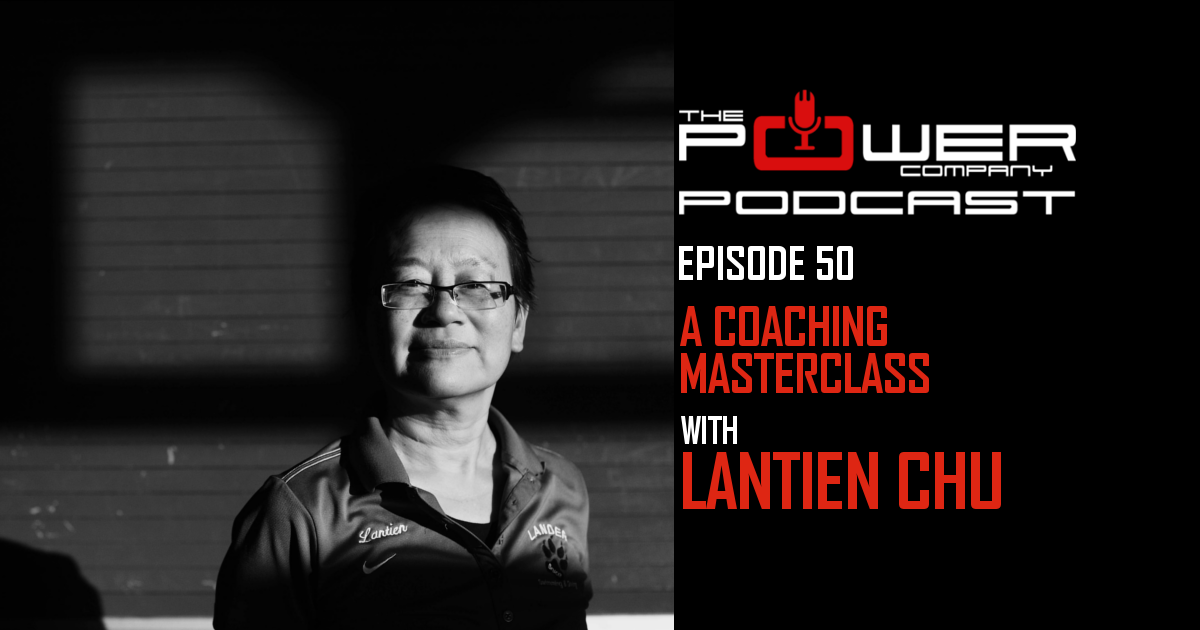
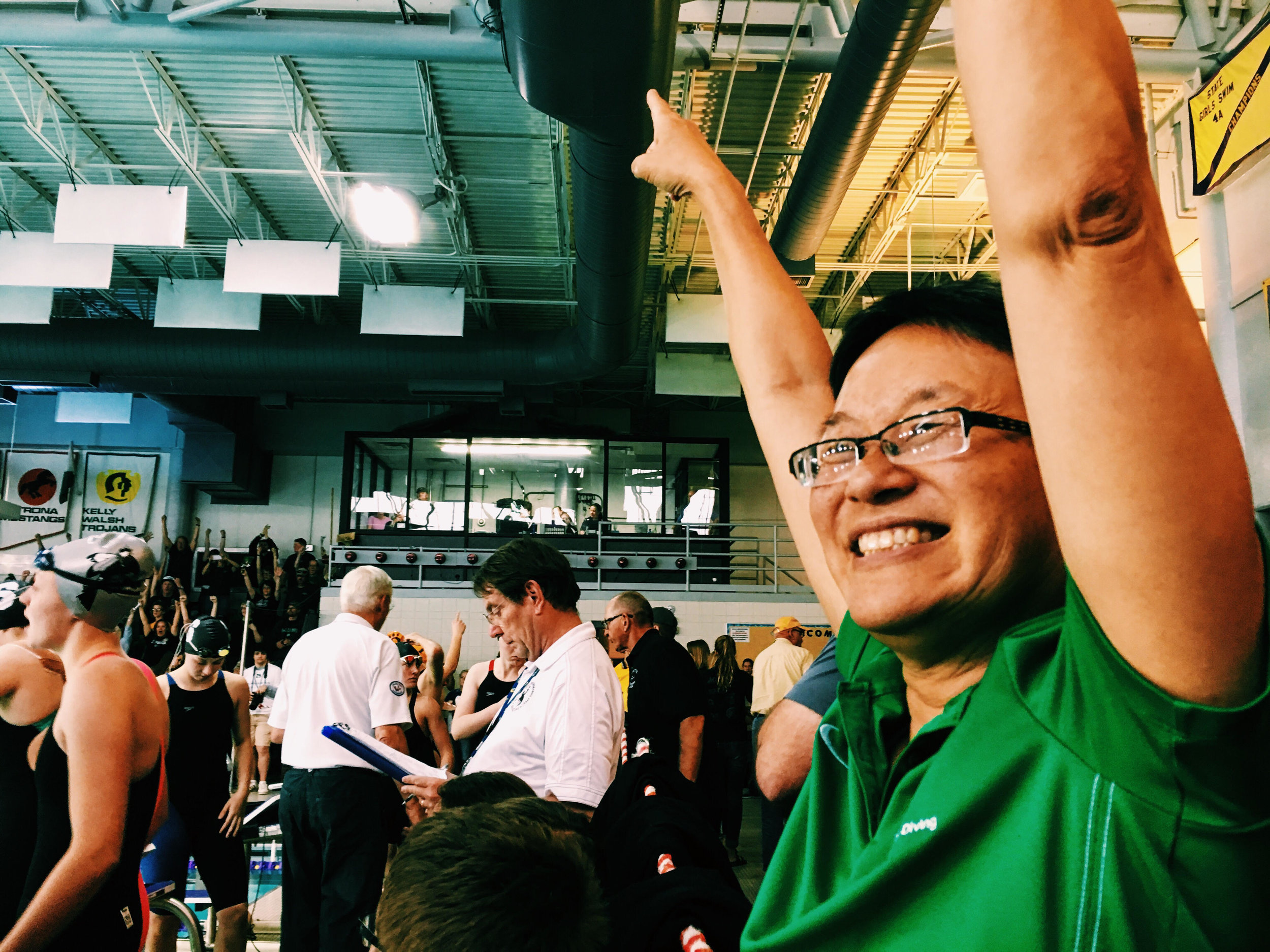

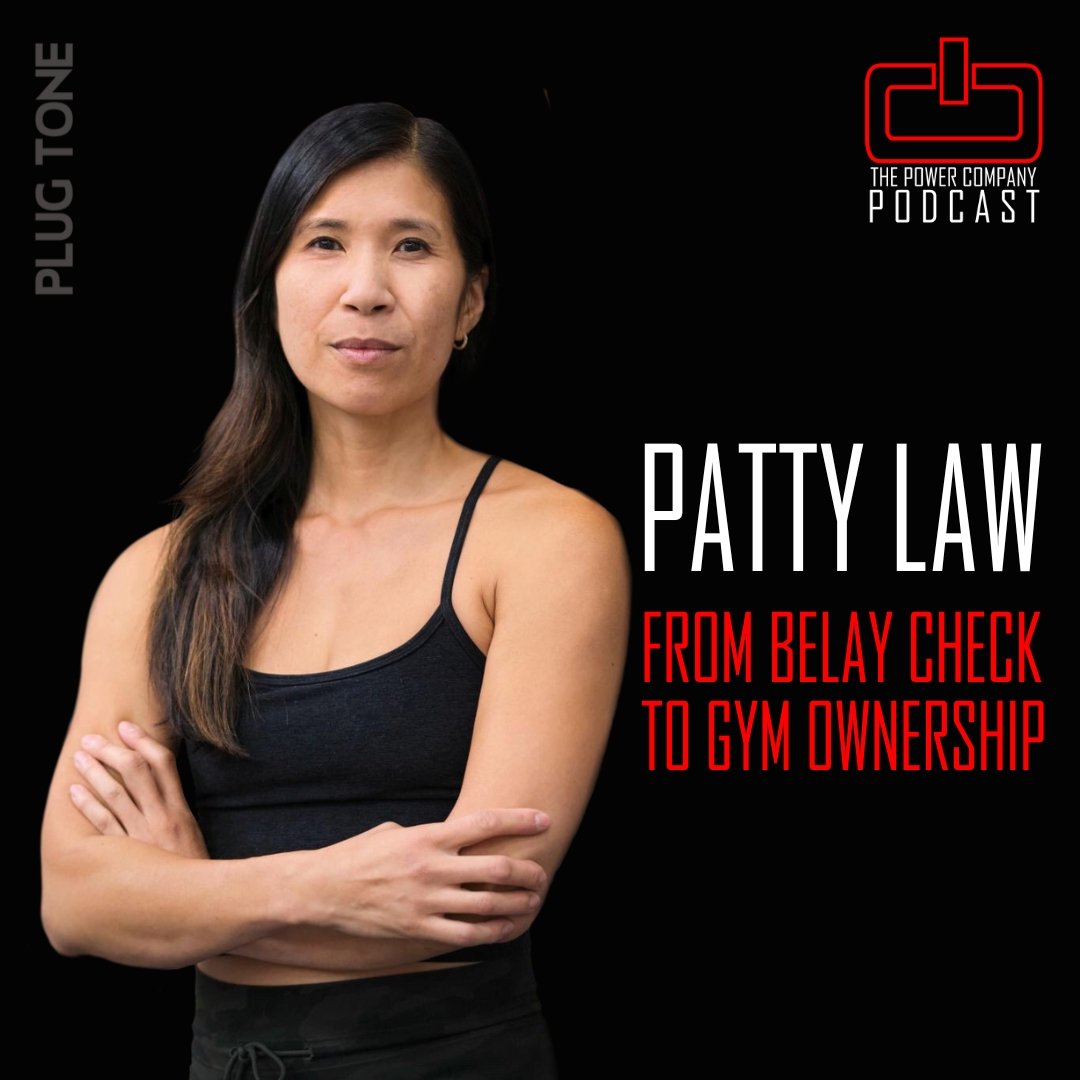

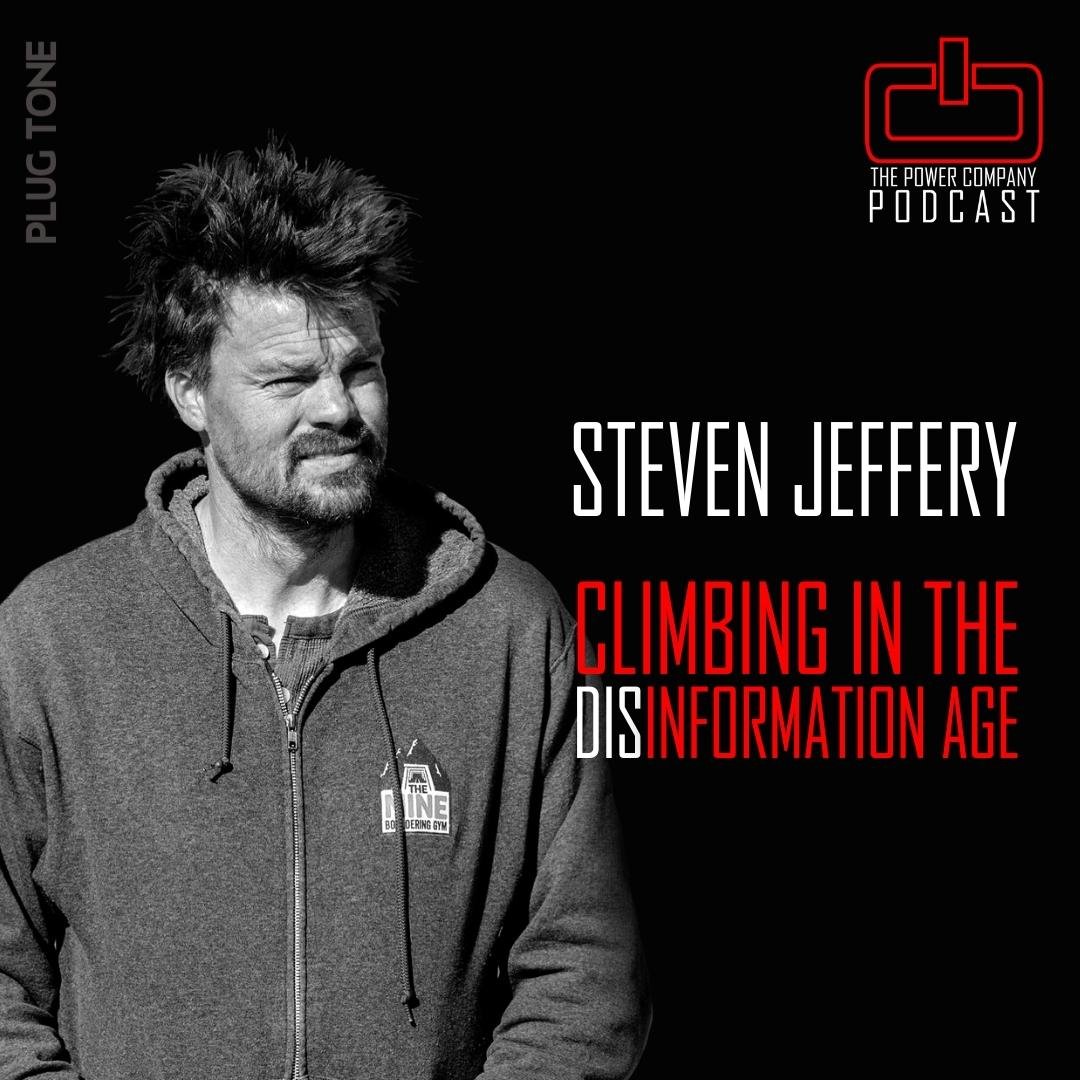



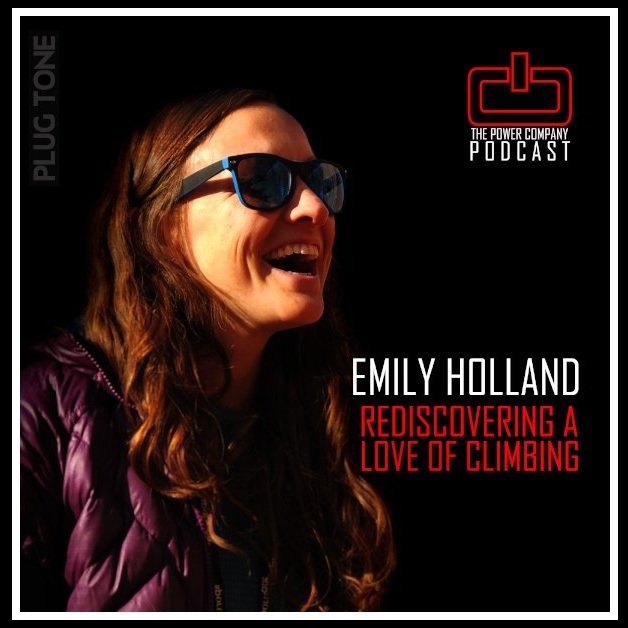
















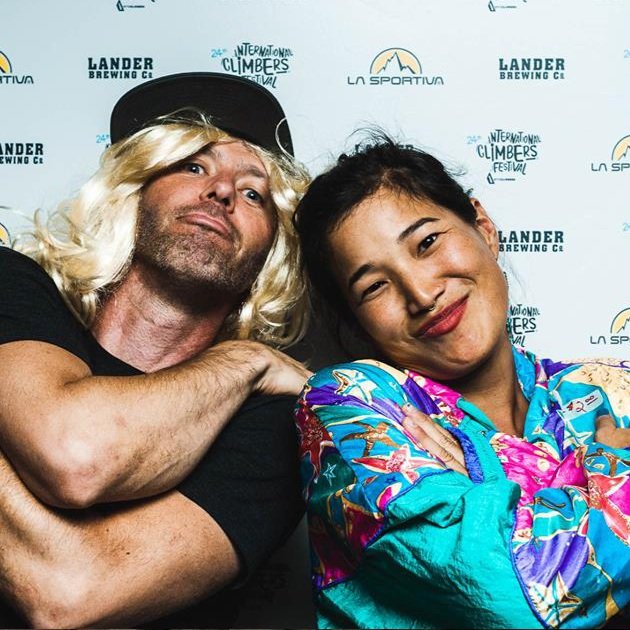







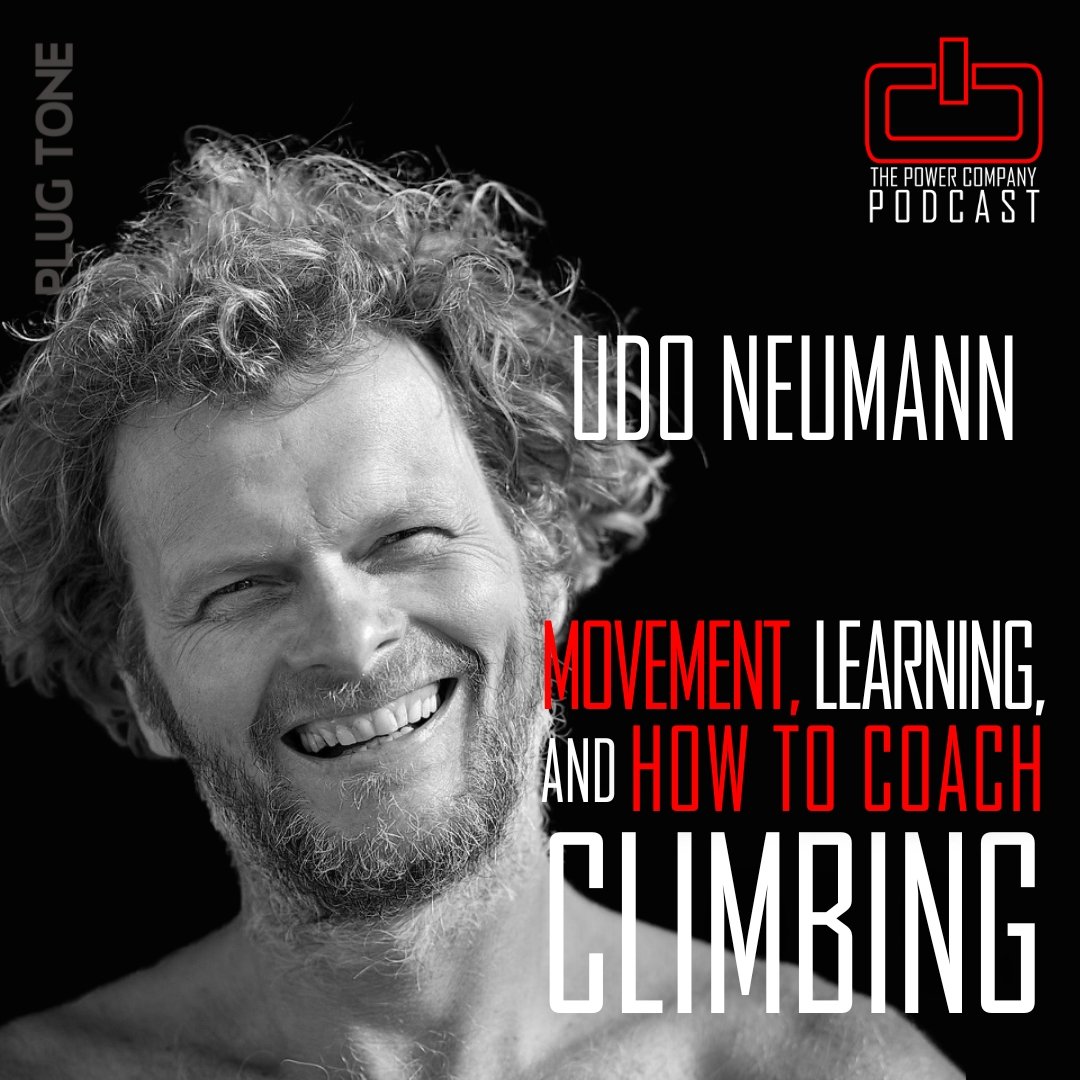
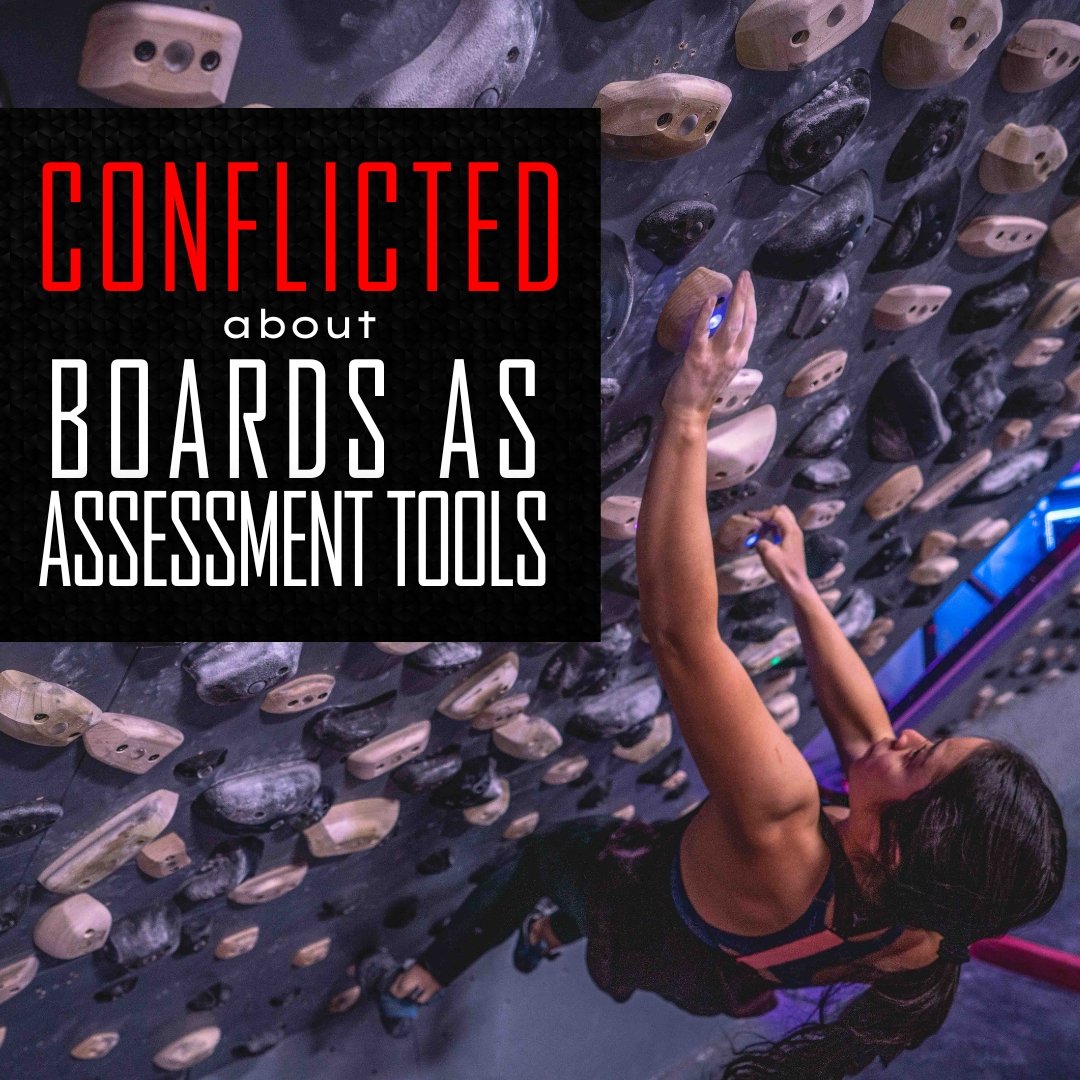
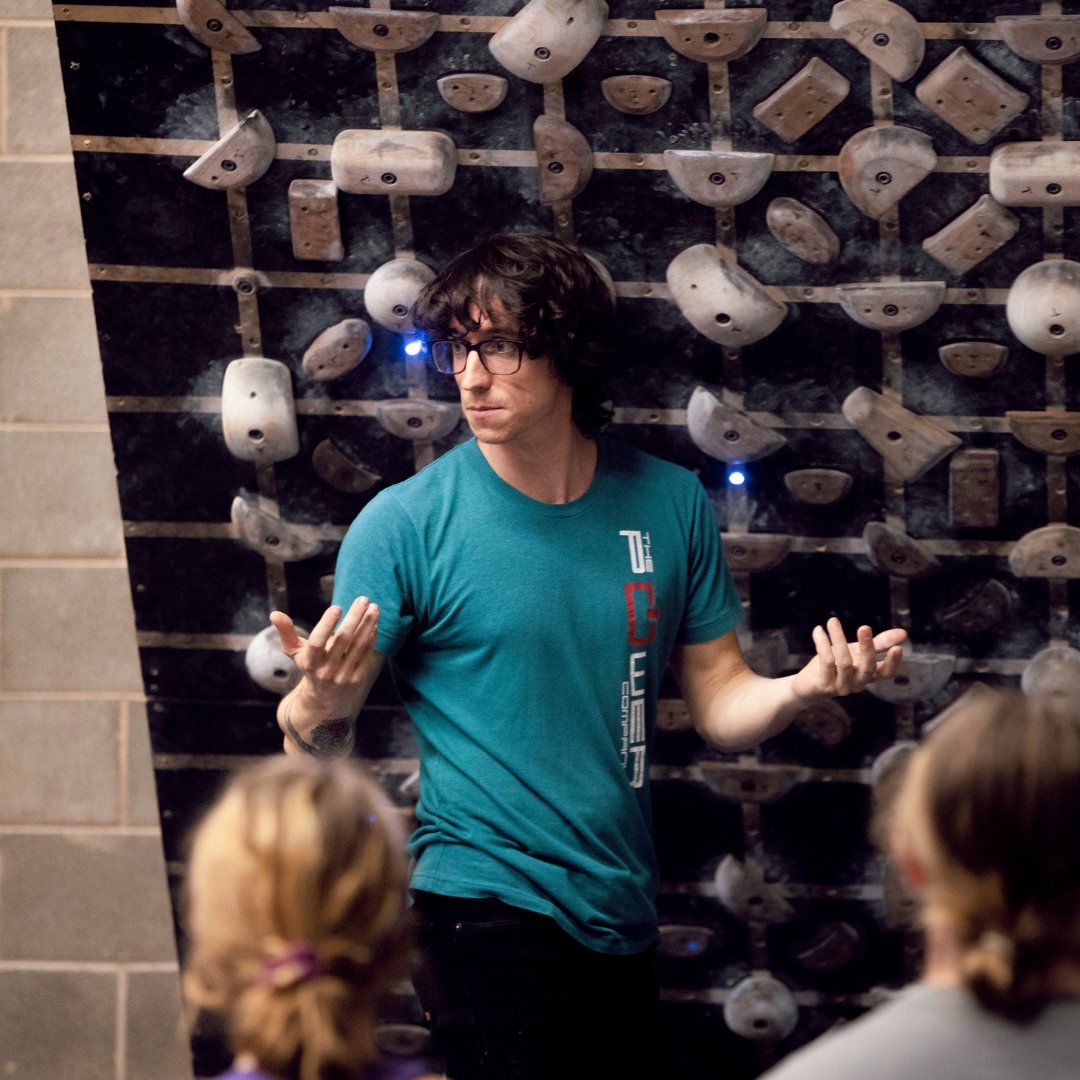
McKenzie Long’s love of climbing – and dream of becoming a writer – led her to consider our relationships with public lands.